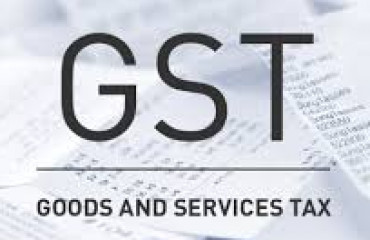
CHANDIGARH : The Goods and Services Tax (GST) Council on Tuesday decided to correct several tax rates and withdraw some tax exemptions, apart from making a series of changes to the GST registration and refund process to boost revenue collections.
CHANDIGARH : The Goods and Services Tax (GST) Council on Tuesday decided to correct several tax rates and withdraw some tax exemptions, apart from making a series of changes to the GST registration and refund process to boost revenue collections.
On Wednesday, the second and final day of its meeting, the Council will look into the demand from states, including Kerala and Delhi, to extend GST compensation beyond June.
The Council, chaired by Union finance minister Nirmala Sitharaman, accepted reports of three ministerial committees that looked into GST rate rationalization, system reforms and transportation of gold and precious stones, respectively, and adopted them without any change, three Council members said on condition of anonymity. According to one of them, the Council will take up two major issues on Wednesday—whether to extend GST compensation beyond June and the proposal to levy a uniform 28% tax rate on online gaming, horse racing and casinos.
In the case of recommendations that have been accepted, the Centre will issue notifications and rule changes as needed, a second member added.
According to the recommendations of the Bommai panel, which was cleared on Tuesday, a 12% GST rate would apply on hotel accommodation priced below ₹1,000 a night and a 5% GST on hospital rooms if rent is above ₹5,000 a day. There is no GST on these services now. Mint first reported the recommendation on Monday. Also, unbranded items such as flour and rice will attract a 5% GST if they are pre-packaged and labelled. Currently, branded versions of these items attract 5% GST and many firms sell pre-packaged and labelled items without registering their brand to avoid tax.
This panel had also recommended raising the GST rate from 12% to 18% on items like printing, writing and drawing ink, certain knives, spoons and tableware, dairy machinery, LED lamps and drawing instruments. In addition, a rate increase from 5% to 12% is expected for solar water heaters and finished leather.
The Bommai panel's term has been extended for submitting its final recommendation on rate changes relating to items such as consumer goods, which have for now been deferred due to a surge in inflation. The Council also unanimously adopted the recommendations of the ministerial panel led by Maharashtra deputy chief minister Ajit Pawar which aims to strike at the root of tax evasion. The idea is to ensure that bogus entities do not get GST registration, weed out fake and non-compliant registrations, and check fake invoicing. The specific steps include biometric verification of those in the high-risk category while seeking GST registration and real-time validation of bank accounts for tax refunds.
These measures are expected to go a long way in preventing the mushrooming of entities that deal in fake invoices and evade taxes.
Following the Council's decision to accept the committee's recommendation on gold and precious stones led by Kerala finance minister K.N. Balagopal, states are now free to specify a threshold for mandatory e-way bill generation for the movement of gold and precious stones. States will have the freedom to set this threshold. The move is expected to make the gold trade more transparent.
On Wednesday, the GST Council will discuss the recommendations for a 28% tax on online games, horse racing and casinos, in addition to discussing GST compensation demanded by several states.
An email sent to the finance ministry and GST Council on Tuesday seeking comments remained unanswered at the time of publishing.
